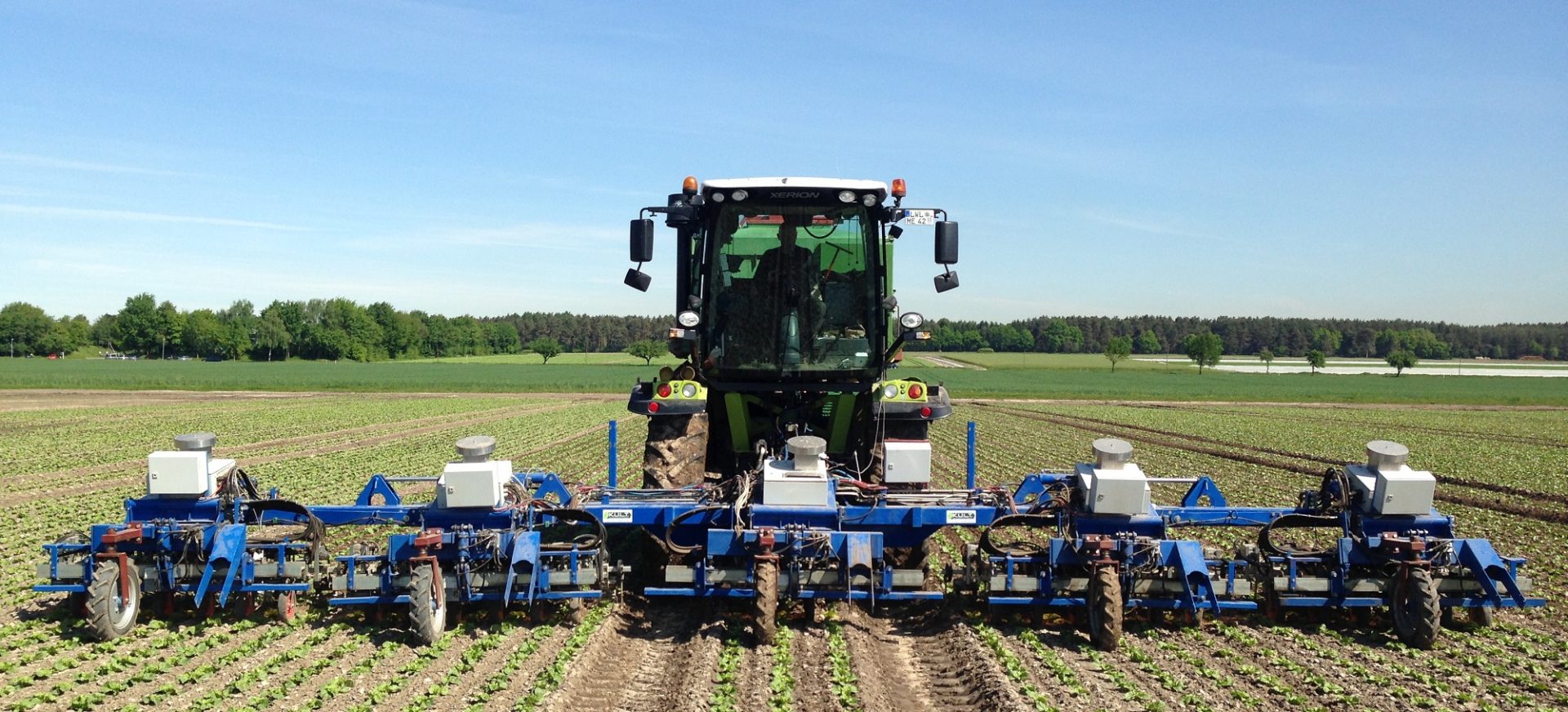State-of-the-art engineering helps organic farmers cope with the weeds
The absence of chemicals in the organic vegetable production causes a greater need for manual work in the fields – or perhaps a gps-controlled self-driving tractor with an automated hoeing machine?
Organic production has for a long time been a Danish agricultural success story in home and export markets alike. Today, Denmark has the largest organic home-market share of any country in the world. An important part of this story is the ability to upscale production to meet the demands for both variation and attractive prices without neither compromising the organic values nor the product quality.
Efficiency is essential
When it comes to organic free-range vegetable production, labour-intensity in the fields is an obvious challenge and unit cost issue. Mechanical weeding has almost entirely replaced the handheld hoe, but the need for efficiency and optimisation remains to reduce pressure on the soil from heavy machinery and to increase the coverage of weeding in a certain timespan.
Mounted to a gps-navigated tractor it makes a futuristic sight in the organic field, working steadily and ruler-straight like only a robot is capable of
A great contribution is the technological innovation within automated mechanical weeding. The Robovator is a prime example. Mounted to a gps-navigated tractor it makes a futuristic sight in the organic field, working steadily and ruler-straight like only a robot is capable of.
Vision-based hoeing
The key is vision-based hoeing using special plant detection cameras for each row of plants. Low in weight and power consumption, the Robovator works with mechanical or even thermal weeding depending on the actual crop, workable in the dark and easily controlled by a smartphone.


